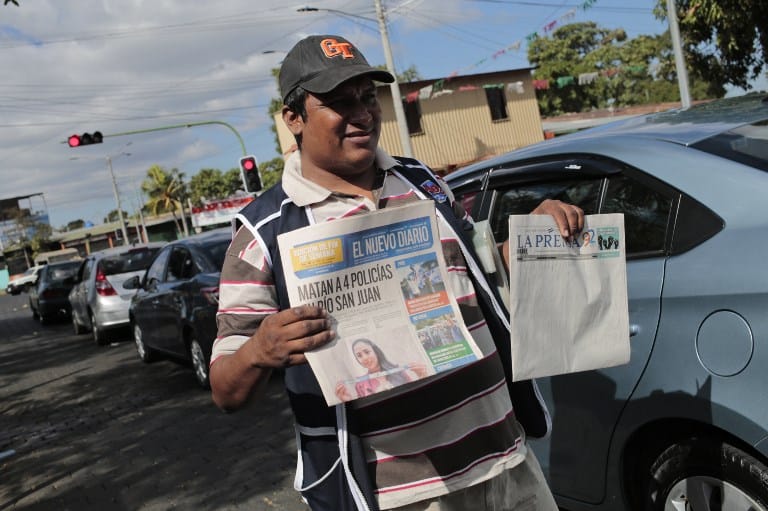Nicaragua announced Sunday its withdrawal from UNESCO, calling it “unacceptable” that the organization awarded the Press Freedom Prize to La Prensa, a staunch critic of the government of Daniel Ortega and Rosario Murillo, whose journalists now work from exile. The announcement of Nicaragua’s withdrawal from UNESCO, which will become effective on December 31, 2026, comes amid growing concerns over press freedom in the country, which has fallen to 172nd out of 180 in the Reporters Without Borders (RSF) rankings.
In a letter sent to the Director-General of the organization, Audrey Azoulay, and published Sunday in pro-government Nicaraguan media, Foreign Minister Valdrack Jaentschke condemned what he called the “unacceptable and inadmissible action by UNESCO.” “It is profoundly shameful that UNESCO is a promoter and evidently an accomplice” of “a media outlet that has encouraged” U.S. “interference” and “interventions,” Jaentschke wrote.
In a statement Azoulay expressed regret over the decision, “which will deprive the Nicaraguan people of the benefits of cooperation in areas such as education and culture.” On Saturday, UNESCO awarded its Guillermo Cano World Press Freedom Prize to La Prensa for “bringing the truth to the people of Nicaragua,” despite the “repression” and “exile” of its journalists, according to the award jury.
The prize enraged the Ortega government, which ruled from 1985 to 1990 and has been in power again since 2007 alongside his wife Rosario Murillo, designated as “co-president” this past February. In a statement, the government called the award “shameful” and labeled the newspaper a “diabolical spawn of anti-Nicaraguan betrayal.”
Greater strength to the recognition
La Prensa, founded in 1926, ceased printing in 2021 amid arrests of journalists and confiscation of its assets. It now operates online with staff in exile in Costa Rica, the United States, Mexico, Spain, and Germany. From exile in the United States, La Prensa‘s manager Juan Lorenzo Holmann stated on X (formerly Twitter) that the government’s “rage” “gives greater strength to the recognition” of the country’s oldest newspaper.
The government’s decision was criticized by exiled opposition groups. The Movement for Civil and Political Rights (Avanza) said it “will further isolate the country and worsen the human rights crisis.” Under UNESCO’s constitution, Nicaragua, a member since 1952, will end its membership on December 31, 2026. Until then, it must continue to fulfill its financial obligations to the organization.
A total of 194 countries belong to this United Nations organization for Education, Science, and Culture, which manages the World Heritage List. Nicaragua has two sites on the list: León Cathedral and the ruins of León Viejo.
Control and Exile
Nicaragua ranks lowest among Latin American countries in the RSF press freedom index. Its government “has eradicated independent media, stripped numerous journalists of their nationality, and forced hundreds into exile,” according to the NGO. Ortega, a 79-year-old former guerrilla who took part in the Sandinista revolution that overthrew dictator Anastasio Somoza, tightened his grip on Nicaraguan society after the 2018 anti-government protests that left over 300 dead, according to the UN.
In the past seven years, around 50 independent or critical media outlets have shut down in Nicaragua and had their assets seized. About 300 journalists have gone into exile, according to press organizations. In the past year, four journalists were arrested, one for reporting on the rising cost of living, and the whereabouts of three remain unknown, RSF reported in March.
A sweeping constitutional reform in effect since February gives Ortega and Murillo absolute power in the country and establishes “surveillance” of the press, among other control measures.






